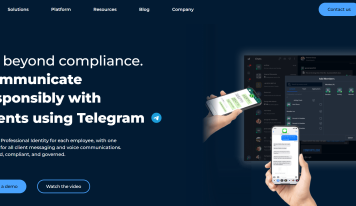I have had many friends and relatives share their gadget purchase decisions with me these past weeks and none of them were Apple products. Most were Kindle and one Nook. Based on my informal questioning it seems the only reason to not buy an iPad and instead a gadget from Barnes & Noble or Amazon is price.
In other words I get the sense these purchases would all be iPad 2s if the prices were similar.
I have argued before that Apple needs a lower-priced tablet whether it is the iPad 2 when a new model comes out or a new iPad Nano. It is worth pointing out that to date Apple hasn’t chased competitors downstream into the land of reduced margin. And this strategy has worked for Cupertino and shareholders.
The challenge is that Apple virtually owns the tablet space and they are going to lose this position if things don’t change.
This is an increased problem because for the first time the PC market also has solid competitors to MacBook Air computers – the Ultrabooks.
A few months ago if you wanted the thinnest laptop or a very popular tablet you had to visit Apple. Now you have alternatives such as the Kindle Fire and thin computers from virtually every laptop player on the market.
I was in a local Best Buy last week and this past weekend and I spent some time with the salesman in the Apple portion of the store. I queried him as to how many people are asking him about Ultrabooks and he said there is no comparison as they get viruses and have no SSDs. His lack of knowledge about the new models from companies like Lenovo, Toshiba and Asus which do indeed have SSDs surprised me. After all Best Buy had the Asus and Toshiba on display no more than fifteen feet away. You figure any salesperson would know what the competition was doing. And you guessed it – the salesperson worked for Apple, not Best Buy.
The Ultrabook category while superhot to the people in the know is not known much outside the bleeding-edge – yet. Many techies I know in fact have never heard of them. Moreover, Best Buy markets Ultrabooks like they were dog droppings. The salespeople don’t know much about them. There is no sign pointing to them as special – or at all different from laptops and notebooks. Most consumers in the store in fact avoided them as they sat in relative obscurity.
It is really inexcusable for Best Buy to have such poor marketing for a killer category of product with potentially higher margins than many other products in the store. Moreover, these devices are perhaps the biggest reason to visit the store – besides perhaps checking out the latest flat screen TVs.
Of course Apple is Apple – they have retail stores and for some reason they are one of the few computer companies that understands simplicity in naming is part of the reason they do so well. Case in point once again is the MacBook Air – a simple name and idea which competes with the Acer Aspire S3-951, Asus Zenbook UX31E, Toshiba Portege Z830, Lenovo IdeaPad U300s, HP Folio 13 and LG XNote Z330. Other than HP, all these names are far too compicated. And why would anyone choose the number 13 for a product? Were the digits cheaper to buy from the supplier because no one else wanted them?
But getting back to Apple – they need some new defenses against what will be an onslaught of new Ultrabooks next year. First of all they need to leapfrog the rest of the field in technology – something that will be difficult to do when your chip supplier has invested hundreds of millions of dollars in Ultrabook innovation for the benefit of your compeition.
But beyond innovation they need to emphasize their superior design, increased resilience (not invulnerability) to viruses, their longevity in the market – their strength as a company – the convenience of their retail stores, Genius Bars, etc.
In short, the world is changing and Apple has to change with it. Remember a new “highest quality” Google tablet is expected next year as well. The virtual monopoly Apple had on the most desirable portable notebooks and tablets is eroding and they need to update their outward messaging and products as the landscape shifts.
Now the idea here is not that Apple is in trouble today. Far from it. Many expect blow out earnings this quarter and they saw a 12x increase in iOS activations over the holiday weekend. The flipside is that while Apple is beating Android in six markets such as the US and Germany, Android is beating iOS by up to 80% in other parts of the world.
What does this mean for Apple? More innovative competitors willing to sacrifice all hardware and software margins to gain share and boost related products and services. How do you compete in such an environment? Keep innovating differentiating and be sure your salesforce can articulate your strengths and the competitor’s weaknesses.
When will Apple be in trouble if ever? John Dvorak thinks it is when they start closing retail stores. The challenge is however this may be a lagging indicator.
Disclosure: I am an Apple shareholder.






